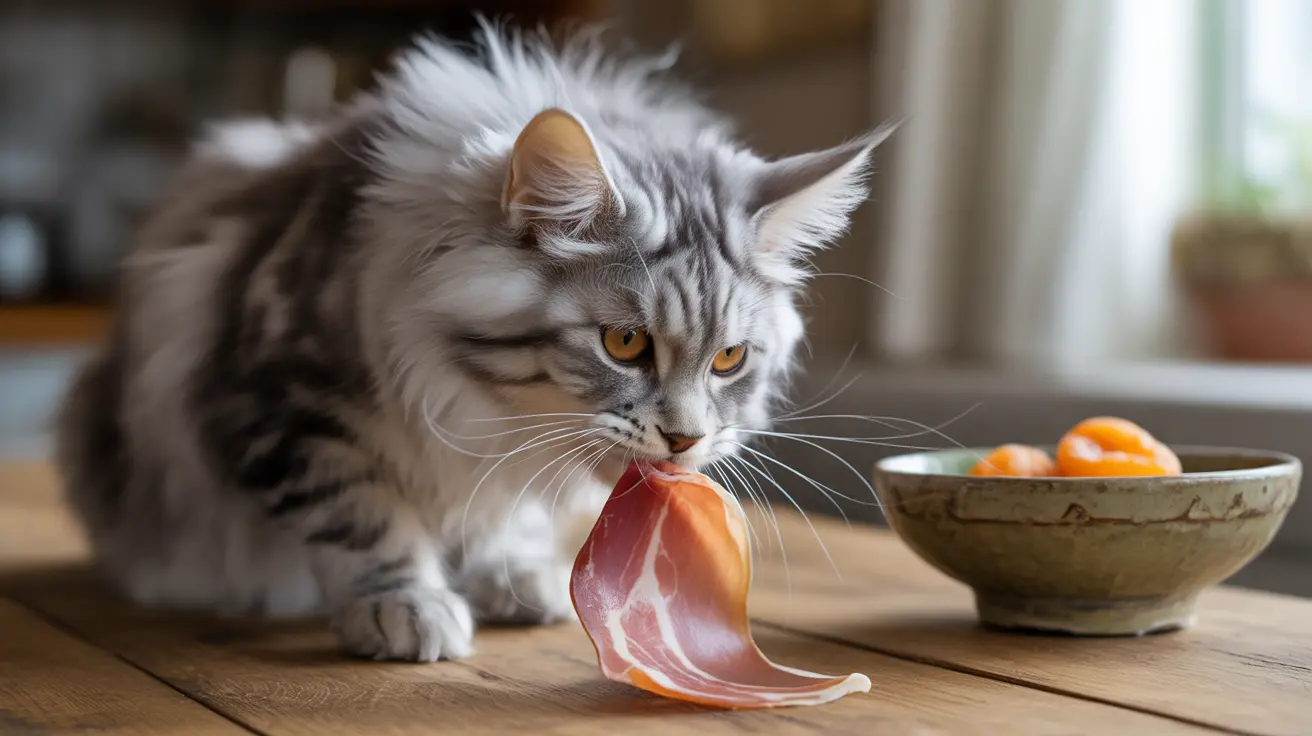Understanding Prosciutto and Its Effects on Cats
Prosciutto is a luxurious, salt-cured ham that's popular in human cuisine. However, its preparation process and nutritional composition make it problematic for feline consumption. While cats are natural carnivores, the high sodium and fat content in prosciutto can pose significant health risks.
The Nutritional Impact of Prosciutto on Cats
Sodium Content Concerns
A single slice of prosciutto contains approximately 345mg of sodium—more than eight times the recommended daily sodium intake for cats (42mg). This excessive salt content can lead to:
- Severe dehydration
- High blood pressure
- Kidney stress
- Potential sodium ion poisoning
Fat Content and Health Risks
The high fat content in prosciutto can trigger several health issues in cats:
- Pancreatitis
- Obesity
- Digestive upset
- Long-term metabolic problems
When is Prosciutto Dangerous for Cats?
Prosciutto becomes particularly dangerous for cats in the following situations:
- Regular consumption
- Large portion sizes
- When seasoned with garlic or other toxic spices
- In cats with existing health conditions
- When improperly stored or handled
Safe Feeding Guidelines
If you choose to offer prosciutto to your cat, follow these strict guidelines:
- Limit portions to tiny pieces (smaller than a pea)
- Offer no more than once monthly
- Ensure it's plain, without seasonings
- Monitor your cat for adverse reactions
- Never make it a regular treat
Healthier Alternatives to Prosciutto
Instead of prosciutto, consider these safer alternatives for treating your cat:
- Commercial cat treats
- Plain, cooked chicken
- Freeze-dried meat treats
- Small pieces of plain, cooked fish
- Veterinary-approved dental treats
Frequently Asked Questions
Can cats safely eat prosciutto, and how often is it okay to give it to them?
While cats can technically eat prosciutto, it's not recommended as a regular treat. If offered, it should be limited to tiny amounts no more than once a month, and only if the cat has no underlying health conditions.
What health risks can prosciutto pose to cats if they eat too much?
Excessive prosciutto consumption can lead to sodium ion poisoning, dehydration, pancreatitis, obesity, and various digestive issues. In severe cases, it can cause serious health complications requiring veterinary intervention.
Why is prosciutto's high sodium and fat content harmful to cats?
Cats have very low sodium requirements and are sensitive to fat content. The high levels in prosciutto can overwhelm their systems, leading to dehydration, kidney stress, and inflammatory conditions like pancreatitis.
Are there any safe ways to feed prosciutto to cats without causing health problems?
The safest approach is to offer only tiny pieces of plain, unseasoned prosciutto very occasionally. However, it's better to choose cat-specific treats designed for feline nutritional needs.
What are healthier treat alternatives to prosciutto for cats?
Better alternatives include commercial cat treats, small pieces of plain cooked chicken or fish, freeze-dried meat treats, and specially formulated feline dental treats. These options provide appropriate nutrition without the risks associated with prosciutto.
Conclusion
While prosciutto isn't strictly toxic to cats, its high sodium and fat content make it a poor choice for feline treats. Instead of risking your cat's health with processed meats, stick to veterinary-approved treats and foods specifically designed for cats' nutritional needs.






